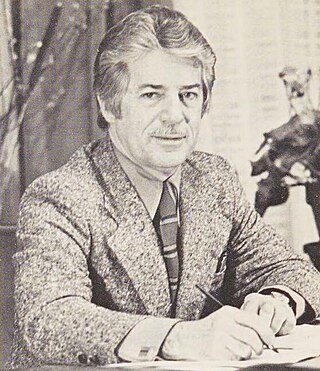Related Research Articles
The Green Party of Canada is a federal political party in Canada, founded in 1983 with a focus on green politics.

The British Columbia Social Credit Party, whose members are known as Socreds, was the governing provincial political party of British Columbia, Canada, for all but three years between the 1952 provincial election and the 1991 election. For four decades, the party dominated the British Columbian political scene, with the only break occurring between the 1972 and 1975 elections when the British Columbia New Democratic Party governed.

The Marijuana Party is a Canadian federal political party, whose agenda focuses on issues related to cannabis in Canada. Apart from this one issue, the party has no other official policies, meaning party candidates are free to express any views on all other political issues. Passage of the Cannabis Act in June 2018 legalized cannabis on 17 October 2018. However, the party is critical of some of the laws relating to cannabis since legalization and wants to see them changed or reformed. It also seeks to represent and advocate for the rights of cannabis consumers, growers, and small cannabis based businesses.

The 1972 Canadian federal election was held on October 30, 1972, to elect members of the House of Commons of Canada of the 29th Parliament of Canada. It resulted in a slim victory for the governing Liberal Party led by Prime Minister Pierre Trudeau, which won 109 seats, compared to 107 seats for the opposition Progressive Conservatives led by Robert Stanfield. Trudeau's Liberals experienced a decline in support as a result of rising unemployment.
The Natural Law Party of Canada (NLPC) was the Canadian branch of the international Natural Law Party founded in 1992 by a group of educators, business leaders, and lawyers who practised Transcendental Meditation.

The Social Credit Party of Canada, colloquially known as the Socreds, was a populist political party in Canada that promoted social credit theories of monetary reform. It was the federal wing of the Canadian social credit movement.
The Libertarian Party of Canada is a federal political party in Canada founded in 1973. The party subscribes to libertarian and classical liberal tenets; its stated mission is to reduce the size, scope, and cost of government. Party policies include ending drug prohibition, ending government censorship, lowering taxes, protecting gun rights, ending laws criminalising the voluntary transfer of money for sex acts between consenting adults, and non-interventionism.
The Canada Party was a short-lived political party in Canada that nominated 56 candidates in the 1993 federal election and one candidate in a 1996 by-election. It was unable to win any seats. The party was populist and ran on a platform of banking and monetary reform. It also advocated direct democracy, referendums and recall elections.
Historically in Quebec, Canada, there were a number of political parties that were part of the Canadian social credit movement. There were various parties at different times with different names at the provincial level, all broadly following the social credit philosophy; at various times they had varying degrees of affiliation with the Social Credit Party of Canada at the federal level.

Jean Marchand was a French Canadian public figure, trade unionist and politician in Quebec, Canada.
The Liberal–Labour banner has been used several times by candidates in Canadian elections:

Beauséjour riding is a federal electoral district in southeastern New Brunswick, Canada, which has been represented in the House of Commons of Canada since 1988. It replaced Westmorland—Kent, which was represented from 1968 to 1988.

Allan Frederick Lawrence, was a Canadian politician and served as both a provincial and federal cabinet minister.

Québec is a federal electoral district that has been represented in the House of Commons of Canada since 1968. It is located in Quebec City in the province of Quebec, Canada.
An independent, non-partisan politician or non-affiliated politician is a politician not affiliated with any political party or bureaucratic association. There are numerous reasons why someone may stand for office as an independent.

The Rhinoceros Party, officially the Parti Rhinocéros Party, is a Canadian federal political party. It originally existed from 1963 to 1993. It was refounded in Montreal on May 21, 2006, and was registered with Elections Canada on August 23, 2007. It was known as neorhino.ca until 2010 when the party changed its name and logo.

The 2015 Canadian federal election held on October 19, 2015, saw the Liberal Party, led by Justin Trudeau, win 184 seats, allowing it to form a majority government with Trudeau becoming the next prime minister.

Heather McPherson is a Canadian politician who was elected to represent the riding of Edmonton Strathcona in the House of Commons of Canada in the 2019 Canadian federal election. She previously served as executive director of the Alberta Council on Global Co-operation.

Soraya Marisel Martínez Ferrada is a Chilean-Canadian Liberal politician who was elected as a Member of Parliament in the House of Commons of Canada to represent the federal riding Hochelaga during the 2019 Canadian federal election. She has served as Minister of Tourism and Minister responsible for the Economic Development Agency of Canada for the Regions of Quebec since 2023.
References
- ↑ History of Federal Ridings since 1867: NICKEL BELT (1972/10/30), Parliament of Canada, accessed 22 May 2009.